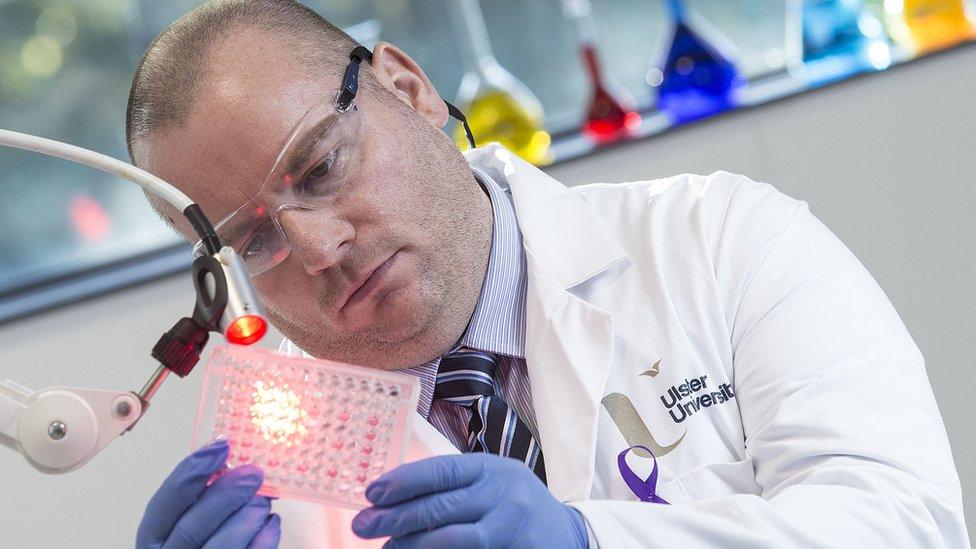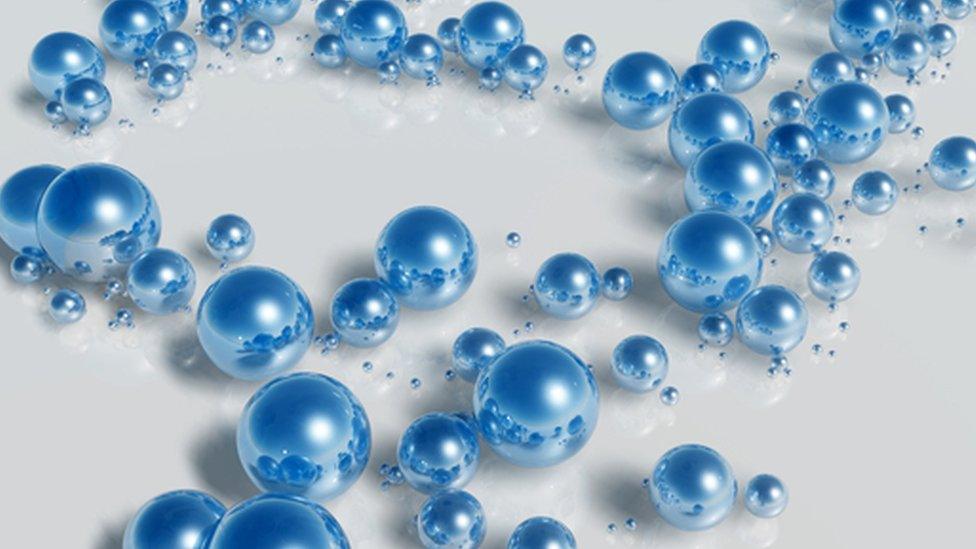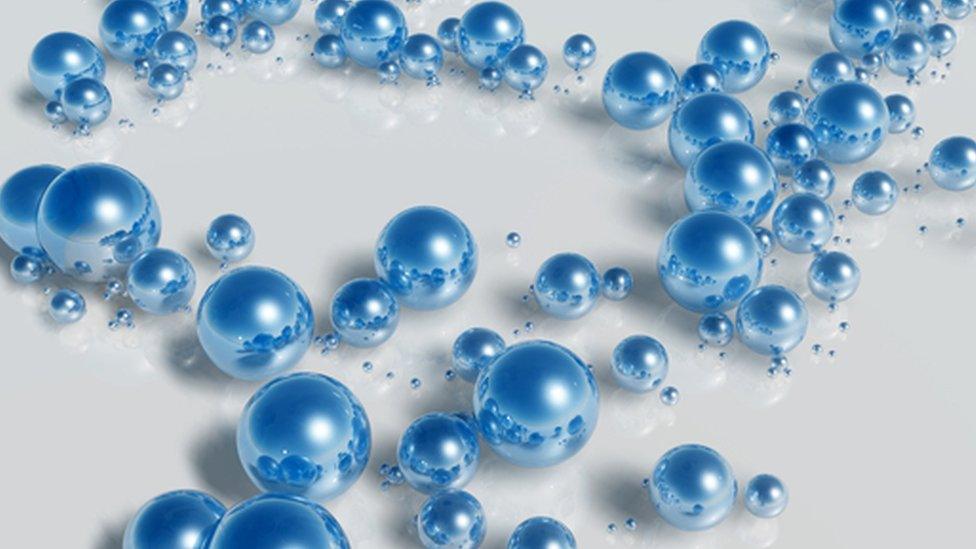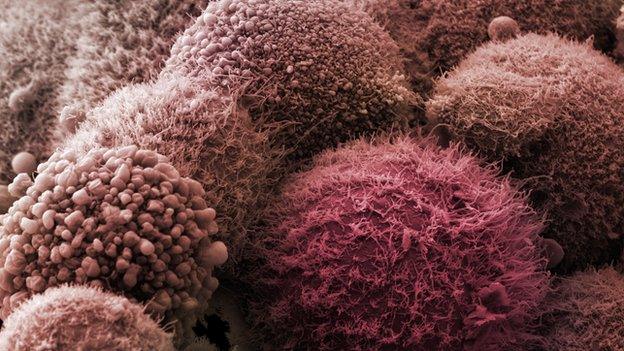Ulster University scientists target pancreatic cancer
- Published

Prof John Callan is leading the Ulster University research
Scientists at Ulster University are leading a new research effort to increase survival rates for pancreatic cancer.
The cancer has one of the lowest survival rates, with fewer than 5% of patients surviving five or more years after diagnosis.
The idea is to deliver oxygen to the tumour and improve radiotherapy treatments.
The treatment will not be available for a number of years
Survival rates had not improved in 40 years, said Prof John Callan, who is leading the Ulster University research.
"There's no coincidence that pancreatic cancer receives the lowest amount of research funding amongst all the common cancers with less than one per cent of the total research spend," he said.
Last year, Ulster University researchers identified a new therapy that can selectively target pancreatic cancer tumours using microbubble technology combined with harmless sound waves.

Micro-bubbles increase oxygen supply to the tumour
A new study, which is being run in conjunction with Oxford University, uses the micro-bubble technology to supply oxygen to the tumour.
This makes chemotherapy and radiotherapy drugs more effective, and means that more patients could be eligible for surgery, the only practical treatment for pancreatic cancer.
"Unfortunately, only about 20% of patients that initially present with pancreatic cancer are eligible for surgery," explained Prof Callan.
Maggie Banks, CEO of the Pancreatic Research Fund, which is funding the research, said: "Because every penny of our funding is donated by supporters who know how devastating pancreatic cancer is, it's our priority to fund the most innovative research that could offer benefits to parents.
"This project is a great example of that strategy and we look forward to hearing the results."
- Published17 November 2015

- Published15 October 2015

- Published3 August 2015
